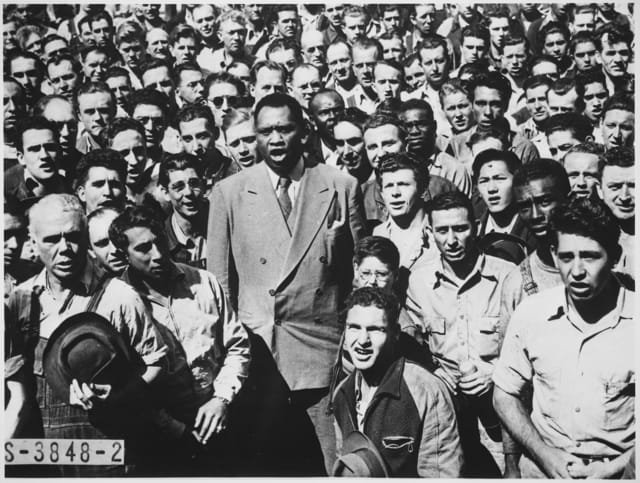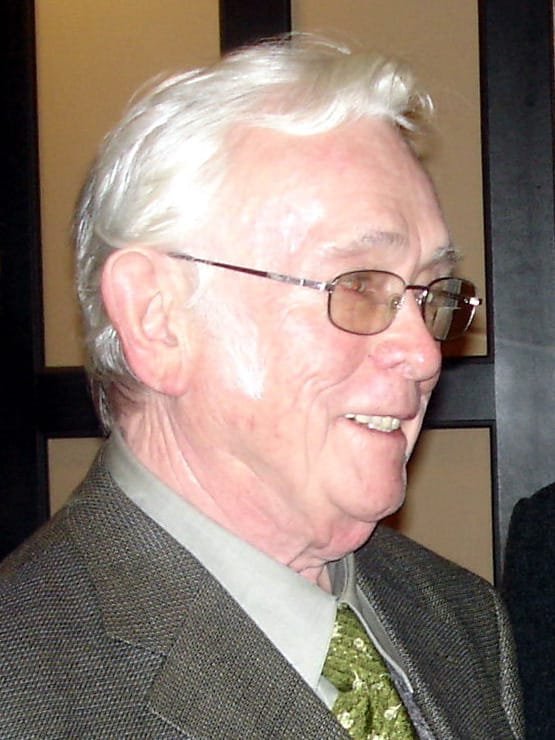At the end of the Second World War, people in Czechoslovakia hungered for social change and there was a general political shift towards the left and a socialist agenda. A National Government was formed with many high positions being occupied by Communist Party members. While President Eduard Benes initially hoped the new government would be able to work with the communists, the government came under increasing Soviet pressure to conform to Stalinist- style socialism, and eventually, a one-party state was created that was entirely controlled by the Soviet Union.
Communist Czechoslovakia used the US civil rights movement to discredit the US and gain support and sympathy from non-socialist states. The regime in Czechoslovakia declared itself against all discrimination, not that this stopped them from violent acts of antisemitism, and continually highlighted discrimination in the United States to cover up their own. They encouraged Civil Rights activists to visit and used these visits to promote communism.
Paul Robeson Photo: U.S. National Archives and Records Administration, public domain
In 1949 Paul Robeson was invited to sing in the Prague Spring classical music festival. Robeson was very supportive and had lots of praise for the Soviet Union and communism, particularly since he was not being well received back in the United States in this time. His passport was revoked in retaliation for the visit but he got it back in 1958 and was invited back to Prague where he continued to heap more praise on the Soviet Union and also spoke of the hope for peace between socialist and nonsocialist states.
At this time, any political dissent had harsh consequences: exile, imprisonment, or worse. Novelist and jazz aficionado Josef Skvorecky, who was in exile in Canada at the time was deeply upset by Robeson’s visits and speeches. He wrote in the preface to his novella The Bass Saxophone:
“.....they pushed Paul Robeson at us. And how we hated that black apostle who sang of his own free will at open-air concerts in Prague at a time…. When the great Czech poets…. Were pining away in jails. Well, maybe it was wrong to hold it against Paul Robeson. No doubt he was acting in good faith, convinced that he was fighting for a good cause. But they kept holding him up to us as an exemplary “progressive jazz man,” and we hated him.”
Josef Skvorecky
Wikipedia
Around 1960 the communist bloc fought with the west to gain the support and influence of African countries that were beginning to gain independence. Czechoslovakia began English-language broadcasts to Africa where they touted communism's freedom from a legacy of slavery and colonialism.
In 1965, Louis Armstrong came to perform at the Lucerna Ballroom in Prague. Political and social tensions were reduced at this time as reforms had come to Czechoslovakia. Unfortunately, this atmosphere did not last long after the Prague Spring reforms were destroyed by Soviet tanks in 1968’s Warsaw Pact invasion.
The Soviet Union tightened its control over Czechoslovakia in the 1970s and 80s though it retained a focus on the civil rights movement in its radio broadcasts where it continued to host socialists praising communism and the Soviet Union. When the Czechoslovakian broadcasts expanded in Africa, in the 1980s, they were quick to point out and exclaim over the fact that socialist countries offered aid and long-term assistance to Ethiopia —which was suffering from harsh famine, without conditions— unlike the United States who declared that the famine and other misfortunes had been caused by the countries socialist orientation.
A few years later, in 1989, communist rule ended in Czechoslovakia.
Written by Anna Wallace
Sources
Vaughan, David.”Czechs and the American Civil Rights Movement.” Radio Prague International, January 18, 2020, .
Skelding, Sam. “The Rise of Communism in Czechoslovakia.” The View East: Central and Eastern Europe, Past and Present, July 21, 2015,



